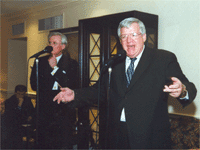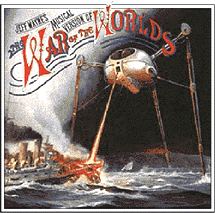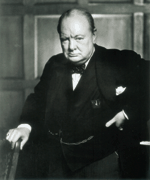Michael Fumento
Factual · Powerful · Original · Iconoclastic
A Dose of Anthrax Reality Behind the Hysteria
January 01, 2001 · Michael Fumento · National Review Online · TerrorismWe’re watching history in the making. Bar none, this is our nation’s single greatest mass hysteria. It’s the reaction to the 1938 War of the Worlds radio broadcast times 1,000. Nobody, it seems, wants to be the last kid on the block to call 911 to report a suspicious powder.

The old portrait of America...
The hysteria is grounding airplanes and emptying out subways, office buildings, and even police stations. The passengers and crew of one commercial jet were detained for three hours because one passenger said a man had dispersed a powdery substance in the ventilation system. The "powder" was confetti from a greeting card.
Pudding mix, powder from a doughnut, and even dirt on lettuce, has brought in the hazmat teams Across the U.S. and Canada, police departments, fire departments, and official health authorities are working around the clock to deal with false threats, while real crimes occur and real buildings burn. If you depicted America in a painting right now, it would be Edvard Munch’s "The Scream."
And regardless of whomever has been mailing the real anthrax, be they domestic or foreign terrorist, you can bet Osama bin Laden is laughing. Time out! We need a moratorium on histrionics. We need a bit of perspective and a bit of information.
Here’s some perspective.
In contrast with the one anthrax death reported, each week about 800 Americans die in motor-vehicle accidents. About a fourth of those would have survived had they merely thought to buckle their safety belts. This winter, about 20,000 Americans will die of flu that they would have survived had they merely gone to a clinic to receive a $15 vaccination.

...and the new.
Now here’s a bit of information.
There has, as of this writing, been one confirmed death from anthrax, almost a dozen other infections, and over 30 additional exposures. (The death of two postal workers in Washington, DC has not been confirmed as anthrax related at presstime.)
"Exposure" means just that. It can be nothing more than a single anthrax spore swabbed from nasal hairs. It takes thousands of those spores to penetrate the lungs to kill.
Why did that first man die? Mainly because he was the first. While anthrax can be naturally acquired, it’s so rare that neither the victim nor his doctors had any clue at first as to his ailment. By the time they found out, it was too late. Likewise, the word is now out that postal workers are at special risk.

”Run for your lives!”
Assuming the two postal workers in D.C. did die of anthrax poisoning, they also became infected before it was realized that mail handlers were at special risk, before postal facilities across the nation began taking special precautions to reduce employee risk.
But let’s look step-by-step at your worst-case scenario.
First, assume you receive a letter in the mail with powder. It’s almost certainly a very unfunny hoax. All of the anthrax-laden letters so far have been mailed to those in high-profile positions. No offense, but you probably don’t qualify.
Some of the hoaxers, predictably and pathetically, have actually been sending powder to themselves to get the 15 minutes of fame Andy Warhol promised them.
But let’s assume the powder in your letter is indeed anthrax. You don’t know that yet, but you’ve called poison control and while they test the substance they put you on antibiotics just in case. Despite what you’ve probably heard, this need not be scarce Cipro. Many antibiotics will work fine. Now your chance of sickness, much less death, is practically nil.
Let’s say you hesitated to call the authorities. Infection with anthrax isn’t like receiving a cobra bite. You’ve still got somewhere around a 48-hour window to start taking antibiotics.

Until powder came along, this was our greatest source of hysteria.
Let’s say you never take antibiotics. You’ll still probably be fine, because the easiest way to contract anthrax is through tiny cuts in the skin but this method of exposure almost never causes death.
But remember, we’re playing worst-case scenario. That means you accidentally breathed the powder into your lungs. This probably would kill you, except that you’ve started taking antibiotics within the first two days of exposure.
That’s it. That’s your risk. That’s why we’re all running around doing the headless-chicken routine. Or so it seems.
Actually, polls show that despite the media’s 24/7 blasts of fear, which are somewhat understandable since by and large they ARE the intended targets, most of us aren’t as worried as we’re being told we are. Most of us are going about living our lives and are not throwing away our mail willy-nilly because we’re convinced an al Qaeda operative forged Aunt Martha’s handwriting.
Nonetheless, for this hysteria to start to die down we need a heavy dose not of Cipro but of perspective and facts. On average, it takes about three reassuring stories to counter each scary one.
We also need assurance from public health authorities from the top of the federal government down to community clinics.

”We shall never surrender!”
And we need it from our elected leaders. Yet it is they who provided us one of the most shameful episodes of the entire hysteria by closing down the House of Representatives after receiving a single letter with anthrax. Contrast that with Winston Churchill’s reaction to very real threat of German invasion in 1940.
What was left of his nation’s once-proud army had just been evacuated from Dunkirk, leaving behind their best weapons. The small island nation stood alone against the most powerful fighting machine in world history.
Everyone knew the next target of this juggernaut was Britain.
But Prime Minister Churchill took to the airwaves, giving one of the most stirring speeches in recorded history. With each word, with each syllable, with each breath he reassured a frightened nation, calling on them to display their best qualities and not their worst.
"We shall go on to the end," he said. "We shall defend our Island, whatever the cost may be, we shall fight on the beaches, we shall fight on the landing grounds, we shall fight in the fields and in the streets, we shall fight in the hills; we shall never surrender."
Today, America is threatened. And whereas the Germans offered Britain a negotiated peace, none is available to us. We are locked in a struggle with an enemy that has stated clearly its aim to make us miserable and to kill us. Our enemy is cunning, but actually possesses few weapons other than terror itself.
Whatever the messages our media and our Congress send, we the people must act with the resolve that Mr. Churchill saw in his people and is characteristic of our people. Like Britains in 1940, we possess a steely resolve. It’s time to show it. It’s time to show that we must not and will not give our enemies precisely what they seek.
